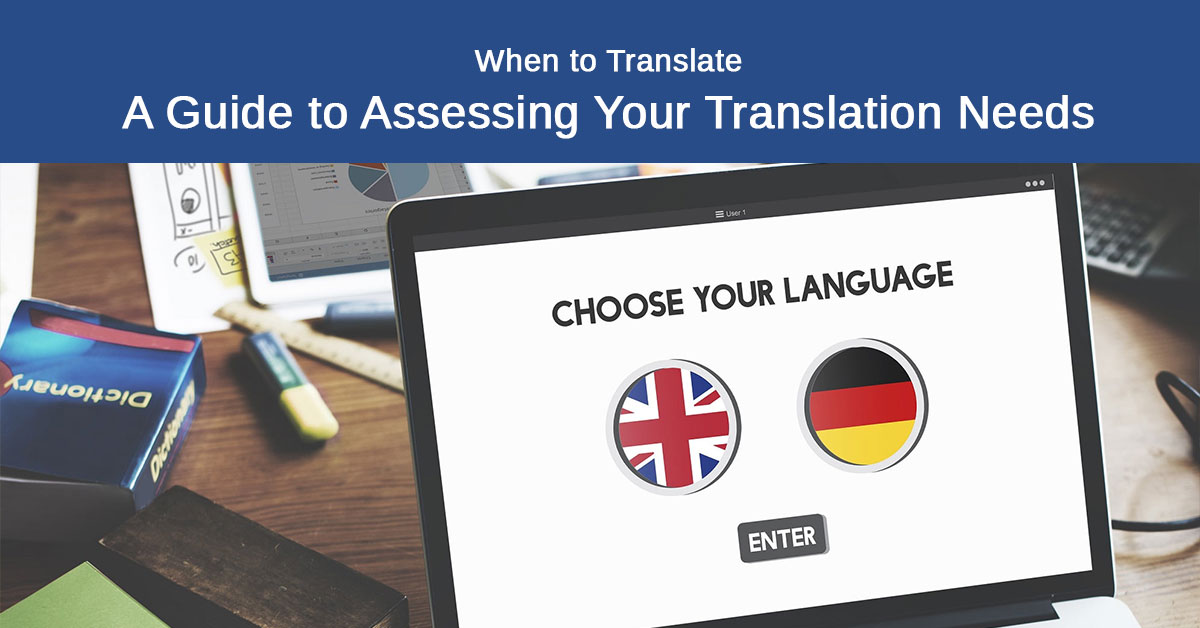
The need for effective language communication and translation has become critical and imperative in today’s interconnected world. It is important for a business wanting to go international, for institutions that want to provide access to global audiences, and for individuals dealing with multicultural environments that require communication across boundaries of language. Nonetheless, you must first analyse your exact needs for translation to assist you in navigating critical points to make a decision on what to translate and when.
The first step in assessing your translation needs is to clearly define your purpose. Ask yourself why you need translation services. Do you want to expand your business into new markets? Do you want to make your academic research accessible to a wider audience? Are you an individual planning to travel or communicate with non-English speakers? Identifying your specific objectives will guide your translation efforts in the right direction.
Understanding your target audience is crucial for effective translation. Consider factors such as their language preferences, cultural backgrounds, and communication habits. Are you targeting a specific demographic of an audience, region, or industry? Tailoring your translations to resonate with your audience's preferences and values will enhance the impact of your message.
Translation services can vary in cost depending on factors like language pairs, complexity, and turnaround time. Establishing a budget is essential to ensure that your translation needs align with your financial resources. Keep in mind that quality should not be compromised for cost savings, as accurate and culturally sensitive translations are essential for effective communication.
There are various methods and approaches to translation, each suited to different needs:
Certain industries, such as healthcare, legal, and finance, may have specific legal and regulatory requirements regarding translations. Ensure that your translation efforts comply with these regulations, and consider seeking expert advice if necessary.
Consistency is key, especially for businesses and organisations with a strong brand identity. Create a style guide or glossary to maintain consistent terminology and tone across all translated content. This ensures that your message remains cohesive and recognizable to your audience.
Selecting the right translation service provider is crucial to achieving your goals. Consider factors like the provider's expertise in your industry, their portfolio of work, and the qualifications of their translators. Request references and samples of previous translations to assess their quality and reliability.
Before finalising and implementing translations, conduct testing and review processes. This step helps identify any potential issues, inaccuracies, or misinterpretations in the translated content. It also allows for adjustments based on feedback from native speakers or subject matter experts.
Translation needs to evolve over time. Keep monitoring the effectiveness of your translations and gather feedback from your target audience. Stay updated on language trends, cultural shifts, and technology advancements that may impact your translation needs. Continuous improvement ensures that your communication remains relevant and impactful.
Effective translation is a powerful tool for connecting with diverse audiences, expanding your reach, and achieving your objectives. You can confidently navigate the translation world by assessing your specific translation needs, considering factors like purpose, target audience, content volume, and budget, and choosing the right translation methods and partners. You can entrust all your translation needs to Language Services Bureau (LSB) for effective translation and localization services. LSB has been listed as a translation agency by the Consulate General of Germany in Mumbai. Staying informed about certification requirements and processes is quintessential for a client looking for certified translations. Remember that accurate, culturally sensitive, and consistent translations are the keys to successful communication in our globalised world.
For any queries related to language translation services. Inquire at our email address below or give us a call today!
info@languageservicesbureau.com
Telephone: +91-20-24470509, +91-82370 60559
Similar articles for you...

आमच्या गेल्या महिन्यातील ब्लॉग मध्ये भाषांचे ज्ञान आवश्यक असणाऱ्या करियर क्षेत्रांची माहिती आपल्याला मिळाली. जिथे भाषेचे ज्ञान फायद्याचे ठरते असे इतर व्यवसाय आपण या महिन्यात पाहुयात.

Posted by : Language Services Bureau

The time it takes to learn a language depends on what you want to do with it– here is a great article about language learning and the kind of expectations you can set about the time required for the same!